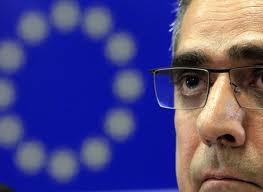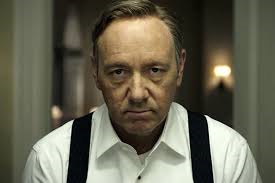
IN IRELAND, AS IN EVERYWHERE ELSE, 1+1 MUST EQUAL 2.
A repost in honour of our exit from the Troika programme:
Every political culture has its own lexicon. In Chile under Pinochet, people feared the DINA, a secret police so lacking in subtlety that its official symbol actually was an iron fist. In Ireland, when one wants to speak of an all powerful entity, we speak of The Troika. Curiously, opinion is divided on the fiscally fastidious, neatly attired men and women from the wonderfully acronymned EUIMFECB.
The usual suspects, that section of Irish people forever bent on one knee in permanent victim status, equate them with the Gestapo or some form of evil occupying force, which would be accurate if the Gestapo had been invited into a country with vast amounts of money to spend on maintaining public services. Then there are some who say they are vampires, which is half right if someone takes into account that in ancient legend a vampire could only enter a homestead if he was invited.
There’s the problem right there, the awkward fact that grates with their opponents and negates a thousand exclamation marked People’s Front of Judea posters. The Troika didn’t arrive following massive air strikes on Merrion Square or via Tom Hanks style landings on Dollymount Strand. The Imperial March is not played when they step off their plane. They came because we couldn’t solve our own problems. We asked them to come because the people we elect were afraid to tell us the truth about what we would have to do. We needed someone else to say what we were afraid to say to ourselves. In short, we needed grown-ups.
That’s what really troubles us when he sits down with his laptop and opens his spreadsheet. He asks us questions that we don’t like asking ourselves. You want to fund that item of social spending? Sure. Just tell him who specifically is going to pay the extra tax to pay for it? It’s not an unreasonable question, but in Irish politics, where cramming the words “social justice” onto a spreadsheet is actually regarded as a mathematical answer, that is just bad manners. Hasn’t sone one told him that Irish maths is different from that maths they use in other countries?
Oh sure, there are some reading this who will be livid, but it is all faux anger. In Greece the arrival of the Troika nearly elected a communist government. In Ireland who is the most popular opposition party? The people who invited the Troika in the first place.
But what of the ugliest truth? That when we eventually exit the bailout and the Troika bid farewell, it will be their greatest opponents who will silently mourn their exit? Why? Because when Ajai & Co. have gone, we’ll be faced with an even more powerful entity that sends gut wrenching fear up and down the spine of every elected Irish leader: a body far more terrifying that the Troika because unlike them we can’t tell it to leave.
It is, in short, responsibility for our actions, and since independence, through corruption scandals and church child molestation, it has been the creature that hid in the shadows and frightened us the most. And now, when the Troika leave, and we have to survive by our own effort, it will lunge from the shadows at us, because we will be The Man from The Troika then.

 Spoiler alert: I’m assuming you’ve seen the Dr Who anniversary episode. If not, why not??
Spoiler alert: I’m assuming you’ve seen the Dr Who anniversary episode. If not, why not?? TMITP: Yes, we should have a new party!
TMITP: Yes, we should have a new party!


 I recently attended a seminar hosted by Dr Teresa Reidy, Jane Suiter, Prof David Farrell and others on the outcome of the Seanad referendum. One point, made by Prof Michael Marsh, which made a lot of sense, was the fact that because we didn’t carry out extensive exit polling after the vote, we have no idea what voters were thinking. It’s a very valid point. We go to all this trouble to have a referendum, and then have no scientific way of measuring the outcome.
I recently attended a seminar hosted by Dr Teresa Reidy, Jane Suiter, Prof David Farrell and others on the outcome of the Seanad referendum. One point, made by Prof Michael Marsh, which made a lot of sense, was the fact that because we didn’t carry out extensive exit polling after the vote, we have no idea what voters were thinking. It’s a very valid point. We go to all this trouble to have a referendum, and then have no scientific way of measuring the outcome.